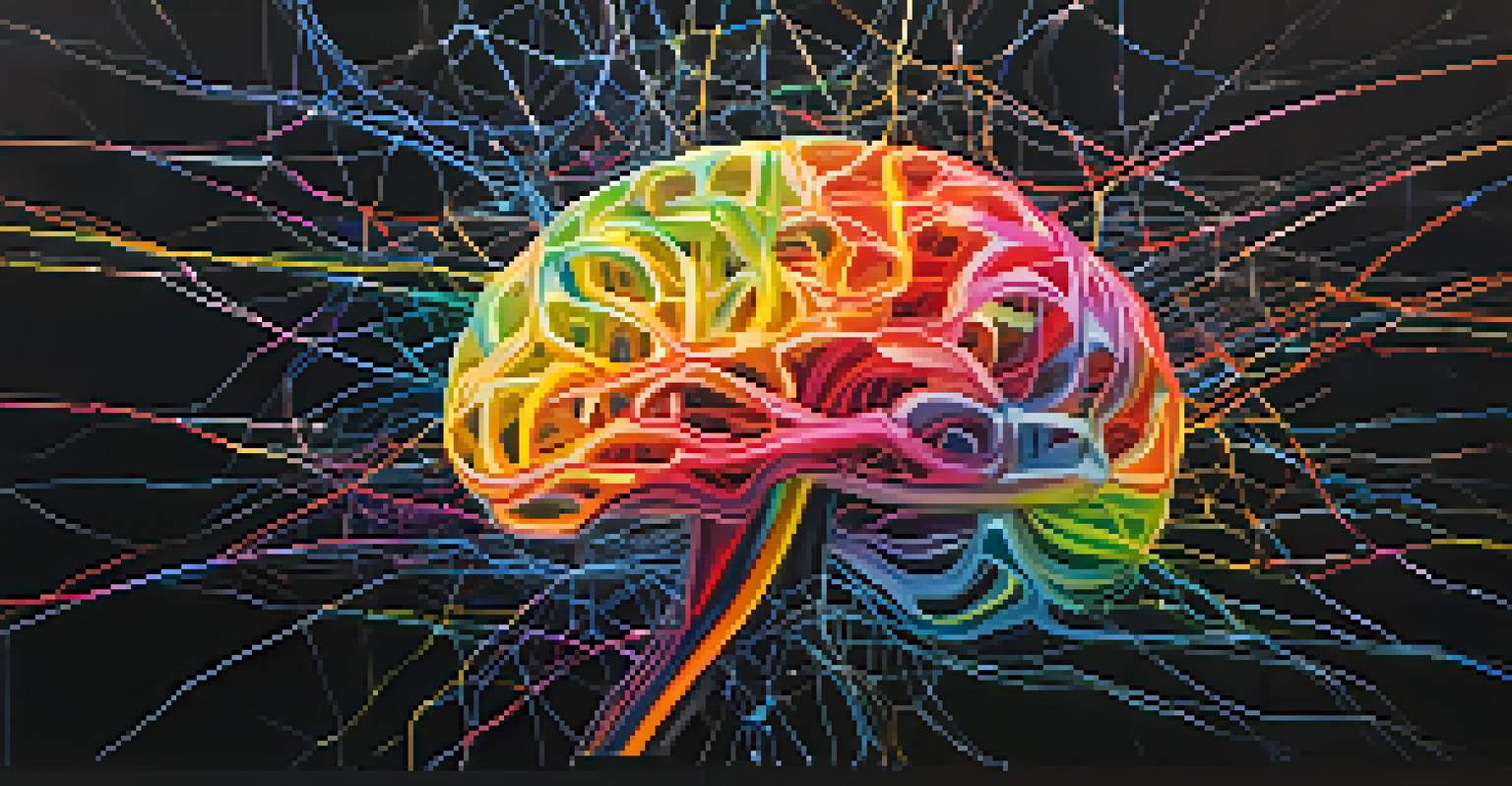Psychedelics and Consciousness: A New Frontier in Research

Understanding Psychedelics: More Than Just a Trip
Psychedelics, often associated with counterculture and recreational use, are substances that can profoundly alter perception, mood, and cognitive processes. They include well-known compounds like LSD, psilocybin (found in magic mushrooms), and DMT. However, recent research is uncovering their potential benefits, not just for recreational exploration but also for mental health and consciousness studies.
The greatest discovery of my generation is that a human being can alter his life by altering his attitude.
What makes psychedelics particularly interesting is their ability to dissolve the 'ego'—that sense of self that often separates us from the world. This dissolution can lead to experiences described as mystical or transcendent, providing insights into the nature of consciousness itself. As researchers delve deeper, they are beginning to understand how these experiences can foster personal growth and healing.
In this context, psychedelics are being viewed not merely as drugs but as tools for exploring the depths of human consciousness. This shift in perspective is opening new avenues for both scientific inquiry and therapeutic applications, suggesting that there’s much more to these substances than previously thought.
The Science Behind Psychedelic Experiences
At the heart of psychedelic research is understanding how these substances interact with the brain. Psychedelics primarily affect serotonin receptors, particularly the 5-HT2A receptor, which plays a crucial role in mood and perception. When activated, these receptors can lead to altered states of consciousness, allowing users to experience the world in novel ways.

Studies using brain imaging techniques have shown that psychedelics can increase connectivity between different regions of the brain, leading to a state of 'hyperconnectivity.' This means the brain can communicate more freely, potentially breaking down rigid thought patterns and fostering creativity. Imagine your brain as a city where the roads are normally congested; psychedelics act like a traffic management system, allowing for smoother connections.
Psychedelics as Healing Tools
Recent research highlights the potential of psychedelics in treating mental health issues like depression and PTSD.
This enhanced connectivity not only contributes to the vivid experiences reported by users but also may have therapeutic implications. By enabling new ways of thinking, psychedelics could offer pathways for treating conditions such as depression, PTSD, and anxiety, transforming how we approach mental health.
Therapeutic Uses of Psychedelics in Mental Health
Recent clinical trials have begun to highlight the potential of psychedelics in treating various mental health issues. For instance, psilocybin has shown promise in alleviating depression symptoms, with some patients reporting significant improvements even after just one or two sessions. This is particularly exciting given the limitations of traditional treatments, which can take weeks or months to show effects.
Psychedelics may be the most powerful therapeutic tools we have available for treating mental illness.
The therapeutic potential of psychedelics lies in their ability to catalyze profound emotional insights. During sessions, patients often confront repressed emotions or traumatic memories in a supportive environment, leading to breakthroughs that traditional talk therapy may not achieve. It's akin to turning on a light in a dark room; suddenly, what was once hidden is illuminated and can be addressed.
Moreover, the growing body of evidence suggests that these substances can promote neuroplasticity—the brain's ability to reorganize itself. This means that psychedelics might not only help in addressing current mental health issues but could also foster resilience against future challenges, making them a revolutionary tool in psychotherapy.
Psychedelics and Their Impact on Consciousness
One of the most intriguing aspects of psychedelics is their ability to alter consciousness in ways that challenge our understanding of reality. Users often report experiences that feel deeply meaningful, leading to a reevaluation of their beliefs and perceptions. This phenomenon raises questions about the nature of consciousness itself: What does it mean to be conscious, and how can substances change that experience?
Research suggests that psychedelics can induce states of consciousness similar to those found in deep meditation or profound spiritual experiences. These altered states can lead to feelings of interconnectedness with others and the universe, fostering a sense of unity that is often described as life-changing. Think of it as standing on a mountaintop and seeing the vast landscape below; it can shift your perspective dramatically.
Altered States and Consciousness
Psychedelics can induce profound altered states of consciousness, fostering feelings of interconnectedness and self-discovery.
Such insights into consciousness may not just be personal but could also inform our understanding of human cognition. By studying how psychedelics affect consciousness, researchers hope to unlock the mysteries of the human mind, potentially leading to new philosophical and scientific perspectives on what it means to be aware.
Cultural Perspectives on Psychedelics and Consciousness
Psychedelics have been used for centuries in various cultures, often within spiritual or religious contexts. Indigenous tribes in the Amazon, for example, have long used ayahuasca in ceremonial settings to facilitate healing and connection with the spiritual realm. These traditional practices highlight how different cultures interpret consciousness and the role psychedelics play in that exploration.
As modern society grapples with mental health crises, there’s a growing interest in these ancient practices. Many are looking to integrate traditional wisdom with contemporary science, creating a bridge between cultures and approaches to healing. This fusion can provide a more holistic understanding of psychedelics, emphasizing their potential not just as drugs but as sacred tools for transformation.
Moreover, as psychedelic research gains traction, it prompts a reconsideration of societal attitudes toward these substances. The stigma surrounding psychedelics is slowly being challenged, opening up conversations about responsible use, accessibility, and the importance of guided experiences in maximizing their benefits.
Legal and Ethical Considerations in Psychedelic Research
As interest in psychedelics surges, so too do questions about their legal status and ethical implications. Many countries still classify these substances as illegal, creating barriers to research and therapeutic use. Navigating this landscape requires careful consideration of both the potential benefits and the risks associated with psychedelics.
Ethically, researchers must prioritize safety and informed consent when conducting studies. Participants should fully understand what they’re entering into, including potential risks and benefits. This is particularly crucial given the profound effects psychedelics can have on mental states, which can lead to unexpected experiences.
Cultural and Ethical Shifts
Growing interest in psychedelics prompts a reevaluation of their cultural significance and the need for responsible research practices.
Additionally, as psychedelics move toward mainstream acceptance, there’s a pressing need for guidelines and regulations to ensure responsible use. Establishing frameworks for clinical use, community education, and harm reduction can help maximize the benefits of psychedelics while minimizing potential pitfalls, creating a safe environment for exploration.
The Future of Psychedelics in Science and Society
Looking ahead, the future of psychedelics in science and society appears promising. Ongoing research is expected to deepen our understanding of their mechanisms and potential applications, particularly in mental health treatment. As more studies yield positive results, it could pave the way for broader acceptance and integration into healthcare systems.
Moreover, the societal dialogue around psychedelics is evolving. Public interest continues to grow, and there’s a push for policy reforms that reflect the latest scientific insights. This could lead to more accessible therapeutic options for those in need, transforming how we approach mental health care.

Ultimately, as we venture into this new frontier of research, the dialogue surrounding psychedelics will likely shift from stigma and skepticism to curiosity and exploration. This evolution promises not only to enhance our understanding of consciousness but also to reshape how we view the mind, healing, and the human experience.